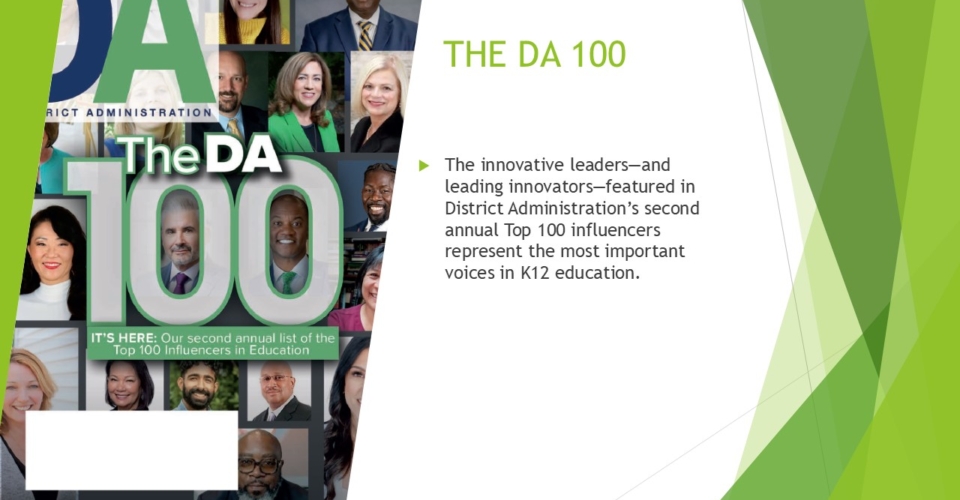Like many districts, we strive to improve student achievement every day at the Metropolitan School District of Decatur Township. That may be through our multi-tier system of support or through our extended-day program or after-school clubs offering enrichment and remediation for students who need it. We are constantly working to ensure that our Tier I core instruction is solid and that our Tier II and III interventions are intentional and focused on supporting each student’s needs.
One of the most important factors in student achievement is high-quality teachers. Excellent professional development and coaching help teachers to become the best educators they can be and offers them the kind of support that makes them want to stay with their district. Since we began using video coaching six years ago, we have seen consistent growth in student achievement, including year-over-year growth in English language arts and math for 2021-2022. Here’s how we help our teachers constantly grow and learn to master their craft.
Aligning PD across the district
Professional development must be relevant, intentional and focused to improve teaching and learning. If it is not relevant, intentional and focused, teachers end up meeting for the sake of meeting rather than to share resources and tools they can use in the classroom to improve instruction.
More from DA: Head scratcher? Florida blocks AP Psychology over LGBTQ+ content
Six years ago, we began using video in our instructional coaching. Our teachers record their own videos and choose which ones to share with their coaches or professional learning communities. This has had a range of benefits, such as improved self-reflection about their own practice, but it also ensures that the support they receive is focused on areas they would like to improve and relevant to what is actually happening in their classrooms.
At the beginning of our video coaching journey, our PD was disjointed and happening in separate silos. PLCs would meet and talk about one thing. The instructional leaders in each building didn’t even meet as a group focused on curriculum or academics, but just as a management team.
Now, we have a common vocabulary and common district-wide goals. Teachers in their PLCs are still talking about what’s happening in their classrooms, but it’s within the context of the goals we are all working towards. Rather than being siloed, everything works to support the other pieces, and we have a process in place to help improve student outcomes.
Keeping coaching non-evaluative
At Decatur MSD, it’s important to us to keep teacher evaluations and coaching separate. One of the most successful components of coaching for us has been self-reflection. Teachers are hard on themselves, and when they watch videos of themselves teaching, they immediately start asking, “How can I improve? What could I do differently next time? How could this lesson have gone better?”
If their coaching sessions were evaluative, they would shut down and lose that reflective piece. They would take their score and move on. Evaluations tell teachers how other educators see their practice, and may even cause defensiveness. True coaching helps practitioners reflect on their performance, warts and all, and focus on becoming better within their discipline.
That doesn’t mean that coaching is non-critical. We do a lot of advanced coaching where teachers are asked to submit video segments focused on specific classroom experiences or challenges. They receive feedback on those, both positive and more constructive, and over time their PLC members and instructional leaders will look to see improvement in areas where they’ve struggled in the past.
When it comes to walk-throughs to evaluate teachers, we allow them to make videos instead of having an administrator visit their class to watch them. The point is not that teachers shouldn’t be evaluated, but that professional growth activities should be focused on development, and never discipline, to ensure a safe environment for taking risks and sharing.
Encouraging educators to learn from each other
Since we began using video for teacher growth, we’ve realized that it provides an excellent opportunity for our teachers to learn from one another. Our own folks are the best experts available on teaching at Decatur MSD, so whenever we spot someone using peer-to-peer academic feedback for example, or the gradual release model in a video, we add it to a library of exemplar videos we’ve been building.
A library of in-house exemplar videos is powerful because teachers hold a lot of “street cred” with one another. Anyone can come in calling themselves a consultant or an expert, but when it’s a teammate they work with every day, who gets results they actually see in the classroom with students they know, it carries more weight.
Teaching Channel, which provides the video platform we use for coaching and PLCs, also includes a library of more than 1,500 videos featuring teachers in real classrooms across the U.S. They carry similar street cred to our in-house videos because the teachers in them are in the trenches with our teachers, even if they’re at different districts.
While it’s nice to learn from each other, it’s also important to get ideas from outside to avoid groupthink, get out of ruts, or simply to try new ideas. Many of our administrators at the building level are also using videos from this library in their own professional development efforts. Just as with teachers, it’s helpful to have examples provided by colleagues who face the same challenges we do every day to get a better understanding of solutions that have worked for real educators and students.
Hardworking teachers who feel supported and encouraged to grow are critical factors in improving student achievement. If you have district-wide alignment in goals and language and regular meetings focused on exemplary practices to provide tools and techniques teachers can take back to the classroom, it’s only a matter of time before your teachers begin to grow and learn to better help your students to bloom.



